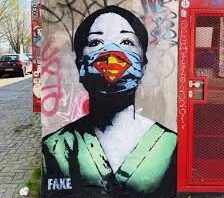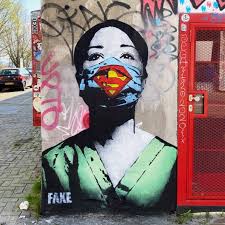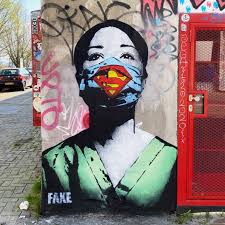
The 3rd session of FSV / CEFRES seminar “Reflecting on Crises” will be hosted by:
Dimitrios Kosmopoulos (Université Paris-Dauphine)
Topic: Economic Crisis and Political Changes in Greece in the 2010s
Where: online.
To register, please contact the organizers: maria.kokkinou@cefres.cz
When: Wednesday October, 14th, 12:30-1:50pm
Language: French
As part of the seminar:
“Enjeux contemporains : Penser les crises” / Current Issues: Reflecting on Crises
organized by Maria Kokkinou (CEFRES / UK) and Jérôme Heurtaux (CEFRES)
Presentation of the seminar:
The crisis has the wind in its sails: due to the appearance and extensive spread of Covid-19 in 2020, this concept has regained a world-wide attention, last observed during the financial crisis of 2009. Apart from these spectacular moments of global turmoil, we can no longer count the events or phenomena that are described as crises.
A concept inextricably linked to modernity, a “crisis” (pre)occupies our societies in all its dimensions. The polysemic uses of the term and its very topicality prompt us to revisit this concept, its different meanings and uses. This seminar course is devoted to this task. It will involve the intervention of researchers from various disciplines – political sociology, history, art history, anthropology, philosophy, etc.
What realities are qualified as “crises” and in which ways are they critical? What is a crisis and how to explain its emergence? How does a crisis unfold, what are its effects and consequences? Why do crises give rise to conflicts of interpretation over their meaning? Is the notion of crisis a central operator of our modernity and a key to understanding the challenges that contemporary societies face?

2nd session of FSV / CEFRES seminar “Reflecting on Crises” will be hosted by:
Jérôme Heurtaux (CEFRES / Paris-Dauphine University)
Topic: Revolutions, Political Crisis and Regime Changes
Where: online.
To register, please contact the organizers: maria.kokkinou@cefres.cz
When: Wednesday, October 7th, 12:30-1:50pm
Language: French
As part of the seminar: “Enjeux contemporains. Penser les crises” / “Current Issues: Reflecting on Crises” organized by Maria Kokkinou (CEFRES / UK) and Jérôme Heurtaux (CEFRES)
Presentation of the seminar:
The crisis has the wind in its sails: due to the appearance and extensive spread of Covid-19 in 2020, this concept has regained a world-wide attention, last observed during the financial crisis of 2009. Apart from these spectacular moments of global turmoil, we can no longer count the events or phenomena that are described as crises.
A concept inextricably linked to modernity, a “crisis” (pre)occupies our societies in all its dimensions. The polysemic uses of the term and its very topicality prompt us to revisit this concept, its different meanings and uses. This seminar course is devoted to this task. It will involve the intervention of researchers from various disciplines – political sociology, history, art history, anthropology, philosophy, etc.
What realities are qualified as “crises” and in which ways are they critical? What is a crisis and how to explain its emergence? How does a crisis unfold, what are its effects and consequences? Why do crises give rise to conflicts of interpretation over their meaning? Is the notion of crisis a central operator of our modernity and a key to understanding the challenges that contemporary societies face?

The first session of FSV / CEFRES seminar “Reflecting on Crises” will be hosted by:
Maria Kokkinou, CEFRES
Jérôme Heurtaux, Paris-Dauphine Université, CEFRES
Topic: Seminar introduction
Where: online.
To register, please contact the organizers: maria.kokkinou@cefres.cz
When: Wednesday September 30th, 12:30-1:50pm
Language: French
As part of the seminar:
“Enjeux contemporains. Penser les crises” / Current Issues. Reflecting on Crises
organized by Maria Kokkinou (CEFRES / UK) and Jérôme Heurtaux (CEFRES)
La crise a le vent en poupe : l’apparition et la diffusion extensive de la Covid-19 en 2020 a redonné à cette notion une actualité globale, qu’elle n’avait plus eu depuis la crise financière de 2009. En dehors de ces moments spectaculaires d’effervescence à l’échelle de la planète, on ne compte plus les événements ou les phénomènes qui sont qualifiés de crise.
Concept-valise de la modernité, la « crise » (pré)occupe nos sociétés dans toutes ses dimensions. Les usages polysémiques du terme et sa très forte actualité nous incitent à revenir sur ce concept, ses significations et ses usages. C’est à cette tâche qu’est consacré ce cours-séminaire, qui verra l’intervention de chercheurs de diverses disciplines, sociologie politique, histoire, histoire de l’art, anthropologie, philosophie, etc.
Quelles réalités sont-elles qualifiées de « crises » et en quoi sont-elles critiques ? Qu’est-ce qu’une crise et comment expliquer sa survenue ? Comment une crise se déroule-t-elle, quels en sont les effets et la postérité ? Pourquoi les crises suscitent-elles des conflits d’interprétation sur leur signification ? La notion de crise est-elle un opérateur central de notre modernité et une clé de compréhension des enjeux qui traversent les sociétés contemporaines ?



